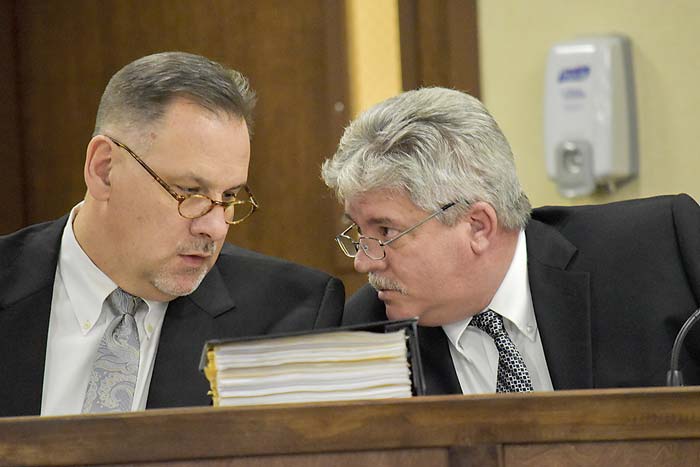Proposed resolution would let officials who think they have been defamed ask the city to pay for suing the critics in Superior Court; ‘It’s a brave, new world’ says City Manager Jon Rorie —
The Peachtree City Council is being asked to pass an resolution Thursday night that will allow city employees and city council members at city expense to sue citizens who defame them in social media like Facebook and Twitter or in news stories.
“Whereas in the normal execution of their duties, elected and appointed officials and employees of the city may be subject to unwarranted public defamation when formal complaints are unwarranted and … the City Council deems it in the best interest of the city to indemnify, defend and protect city elected and appointed officials … Peachtree City shall fund legal action on the part of any elected official, appointed official, or employee … who has been defamed in a public media outlet,” the resolution reads.
In other words, an aggrieved council member, city manager or city worker who believes he or she has been defamed can get the city to pay for filing a lawsuit for damages against the offending party. The move toward empowering a local government to sue its citizens for comments made about the city’s officials may be unprecedented in modern Georgia history.
If the city, paying an attorney 20 percent more than the city attorney makes, according to the proposed resolution, wins the lawsuit against the person or media outlet, then the losing citizen or firm would have to pay the city’s legal expenses, not to mention any damages awarded.
The new power would mean that if a city council member or the city manager or any other city worker receives public criticism that they deem defamation, that official could file a lawsuit financed by the Peachtree City Council against the citizen who made the criticism and the media in which the statement appeared. The person or company sued would have to pay attorneys to file legal responses in Fayette Superior Court, thus incurring substantial costs before the case ever went to trial.
Under longstanding U.S. Supreme Court rulings, a “public person” may not seeek damages even for libel or slander against them unless the information was published or disseminated “with malice,” generally held to be publishing a defaming falsehood without regard to whether it is true or false.
If the council approves the defamation resolution, it would become the first known example in Georgia of a government at any level empowering itself to sue citizens to make them prove either that what the citizen said was true or admit that it was false, thus subjecting the citizen to potentially thousands of dollars in legal fees to be paid to the city.
Also at issue is whether the unprecedented power of a local government to go after its critics might have the effect of silencing any critics of the city and its elected and appointed officials.
Contacted Monday, City Manager Jon Rorie said the idea behind the resolution is a response to instances of unfounded defamation, slander or libel stemming from ethics violations. But, as he noted, suit could be brought by the city against an individual for such comments that did not rise to the level of a formal ethics violation accusation.
Asked if the revision, if adopted, would open the door for the city to sue anyone with a publicly-stated negative opinion toward an elected or appointed official, a city employee or a volunteer, Rorie said what is at issue would be triggered by those unfounded instances of defamation, libel or slander, and not by someone only criticizing.
“It’s a brave, new world. It’s not about people criticizing. It’s about being defamed,” Rorie said, noting that such defamation could come from a newspaper or any media, including social media. “People think they have the luxury of saying false things about people. No one has the right to say I (or anyone working or volunteering for the city) am corrupt and attack me publicly.”
Rorie was asked why use taxpayers dollars to sue an individual. Rorie responded, saying he did not know the answer to that question, adding that the topic is worth discussing in a public meeting and, hence, was put on the agenda.
Asked about the impetus of potentially revising the resolution to make suing citizens the law of the land in Peachtree City, Rorie said the matter was a concern of his, and adding that the item is on the agenda because one or more on the City Council also wanted it.
The council will consider the proposed resolution Thursday at 6:30 p.m. at City Hall.
Pages 86 thru 88 from 04-18-2019 City Council packet
CORRECTION and CLARIFICATION — The word “ordinance” is replaced in all occurrences in this article and replaced by the word “resolution.” What’s the difference?
“An ordinance passed in pursuance of express legislative authority is a law and has the same effect as a local law,” according to uslegal.com.
A resolution, on the other hand, “is an expression of opinion or mind or policy concerning some particular item of business coming within the legislative body’s official cognizance,” according to uslegal.com. Adopting a resolution sets new city policy.
In the resolution before the council, a majority vote would revise the city’s current policy of insurance protection for its employees, commissions and council members that defends them from outside lawsuits, a defensive posture.
The proposed resolution would expand the current insurance indemnity coverage and change one aspect to an offensive posture.
The new city policy would allow city officials who believe a person or firm has defamed them to bring a defamation lawsuit against a person or group making the statements with the city footing the upfront legal costs, including attorney’s fees. The indemnifying policy would repay the city — minus a likely deductible — for any legal costs not recovered from the defendant.











Leave a Comment
You must be logged in to post a comment.